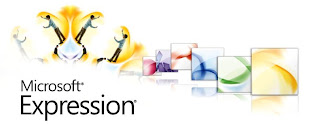A peek into the crystal ball - An empire named HTML5
After mobile Flash has been jilted, there's (more or less official) word out on the street that Silverlight 5 will be the last iteration of Microsoft's web interaction platform. Eventually, HTML5 seems to be the next big thing, and among many other reasons for the first major release of the web standard in ages, the following make most sense for me:
Microsoft sure knows how to amaze developers, and with the incarnation of XAML, have given us a toolset that enables us to develop for the web, the mobile and the windows platform in the same comprehensible way.
HTML5 is supposed to do the very same thing, and in addition enable us to develop for iOS and other non-.Net-aware platforms as well, all with the help of JavaScript (yuck!). That's what I call zombie technology : I thought JS was dead, but here it comes, stabbing us all in the back (or, from a more flowery perspective, giving us all the help we need).
Silverlight has - to my mind - always been one of those borderline technologies : I was never really certain whether it was a proof of concept (we can do what flash can do, but better) or a great white hope (with financial profit for Microsoft). The EOL notice - be it official or not - will give Silverlight 5 developers, authors and trainers a very hard time finding business, and what remains will be the technology that benefits from the Silverlight mindset (WPF, WP7), at least until it falls over the saucer's edge as well.
In the end there will be one major Client technology, and that will be HTML5. That, of course, will only be true until its insufficiencies in specific scenarios show up and the next more colorful fish swims along. Even nowadays there's Delphi software being used and maintained, I have even come across a few COBOL relics in productive use. As technology lifecycles become shorter, it is us developers who have to keep up with the pace, which means : If you're a WPF specialist today, you should aim at becoming a WinRT specialist tomorrow. The environment is changing faster than ever, and yes - even HTML5 will be old in a few years' time. The empire rises and falls.
A question to ponder about : How do I ever become a seasoned expert, how can I distinguish from the masses when the environment crumbles and rebuilds in shorter cycles? Any ideas? Mail me, I'd love to read those!
- No Framework or runtime required
- open specification
- in future, every browser will implement it without a plugin (bringing an end to license hell)
Microsoft sure knows how to amaze developers, and with the incarnation of XAML, have given us a toolset that enables us to develop for the web, the mobile and the windows platform in the same comprehensible way.
HTML5 is supposed to do the very same thing, and in addition enable us to develop for iOS and other non-.Net-aware platforms as well, all with the help of JavaScript (yuck!). That's what I call zombie technology : I thought JS was dead, but here it comes, stabbing us all in the back (or, from a more flowery perspective, giving us all the help we need).
Silverlight has - to my mind - always been one of those borderline technologies : I was never really certain whether it was a proof of concept (we can do what flash can do, but better) or a great white hope (with financial profit for Microsoft). The EOL notice - be it official or not - will give Silverlight 5 developers, authors and trainers a very hard time finding business, and what remains will be the technology that benefits from the Silverlight mindset (WPF, WP7), at least until it falls over the saucer's edge as well.
In the end there will be one major Client technology, and that will be HTML5. That, of course, will only be true until its insufficiencies in specific scenarios show up and the next more colorful fish swims along. Even nowadays there's Delphi software being used and maintained, I have even come across a few COBOL relics in productive use. As technology lifecycles become shorter, it is us developers who have to keep up with the pace, which means : If you're a WPF specialist today, you should aim at becoming a WinRT specialist tomorrow. The environment is changing faster than ever, and yes - even HTML5 will be old in a few years' time. The empire rises and falls.
A question to ponder about : How do I ever become a seasoned expert, how can I distinguish from the masses when the environment crumbles and rebuilds in shorter cycles? Any ideas? Mail me, I'd love to read those!

Kommentare
Kommentar veröffentlichen